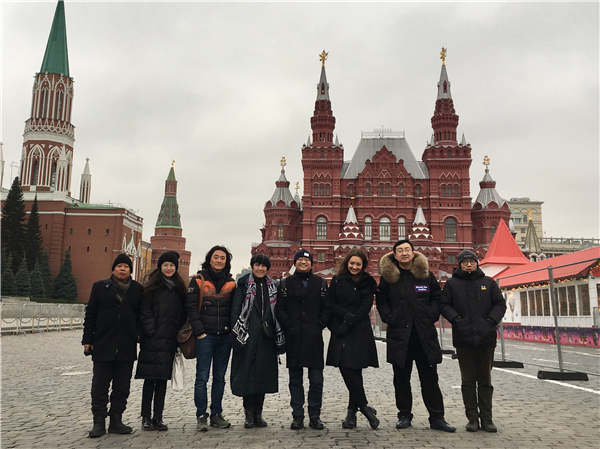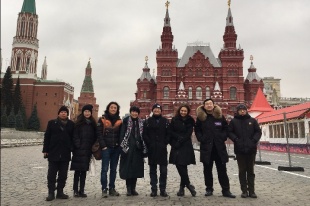Chinese poets take pride of place in Moscow


"China has an unmatched poetic tradition that spans centuries"
At the start of the month the 10th Moscow International Poetry Biennale 2017 closed in Moscow. This year for the first time the biennale was dedicated to a single country, China. Thirteen Chinese poets, including Yu Jian, Yang Lian, Han Dong, Chen Dongdong and Li Suo, were invited to read poems to the public and to converse with their peers and readers. China Daily talked to the festival organizer Natalia Azarova via email. She is also a poet and translator.
This was the Moscow International Poetry Biennale 2017, and Russia's rich history of poetry is well known. Is poetry still a popular genre in the country, and what does it mean for Russia and its people?
Poetry was very popular in the 20th century. At the turn of the century there was another splash of popularity when poets considered underground were able to publish their works, but this was fleeting. Things are now ambiguous. On one hand the role of poetry as a part of a standard upbringing is falling, but at the same time the number of self-taught poets is rising. Poetry forms such as rap are very popular. So you can clearly say that pop poetry, as well as poetry as a means for communication, is growing. So festivals like this allow us to bring more people into the fold of academic, professional poetry.
Chinese poets were invited for the first time. Why did you invite them and why these particular poets?
In previous biennales participants came from many countries. This is the first time it was dedicated to a single country. This is no coincidence because China has an unmatched poetic tradition that spans centuries. Russian readers are aware of classical Chinese poetry, but modern Chinese works are a mystery to them. We believed the 13 poets we invited reflected the depth and width of modern Chinese poetry, representing different regions, ages and writing in different styles, some being members of Chinese poetic society and others being independent. For us it was the most representative group of Chinese poets that has gathered outside China, and we are proud of that.
In the consumer society we live in, what do you think the position of poets and poetry is? How important is it for people to read and write poems?
Poetry itself can be consumer-driven when it is part of a show, when the way in which it is presented becomes more important than the material and its essence. However, poetry that implies a complex perception is inherently anti-consumerist. One must not forget that poetry is an art that has always existed - unlike prose, cinema or even art - so even a modern consumer-based society poses no threat to poetry or its existence.





































